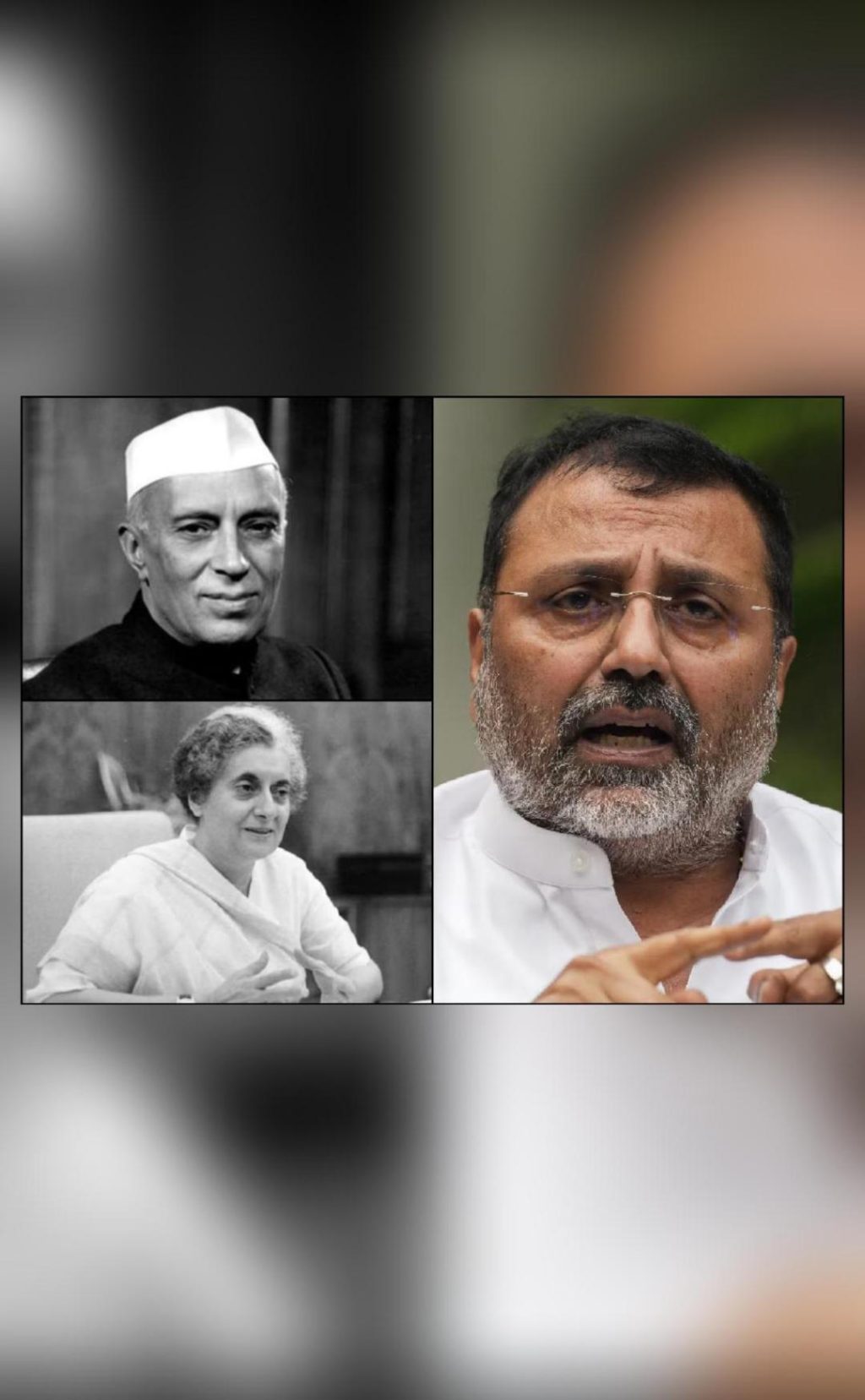
Title: Nehru & Indira drove away Intel from India; it went to China: BJP
The Bharatiya Janata Party (BJP) has made a shocking claim that the former Prime Ministers of India, Jawaharlal Nehru and Indira Gandhi, drove away semiconductor companies like Intel and Fairchild from the country, forcing them to set up shop in China. The claim was made by BJP MP Nishikant Dubey on his social media handle, sparking a heated debate among netizens.
Dubey, who is known for his controversial statements, tweeted that it was Nehru and Indira Gandhi’s policies that led to the departure of these companies from India. He stated that these companies were attracted to China because of its business-friendly environment and lack of regulations. According to Dubey, Nehru and Indira Gandhi’s policies were not conducive to business, which led to the loss of these companies.
The tweet has sparked a heated debate, with many questioning the accuracy of Dubey’s claim. Some have pointed out that Intel is still a major player in the global semiconductor industry and has established a significant presence in India, despite Dubey’s claim that it left the country. Others have argued that the claim is unfair and that Nehru and Indira Gandhi were instrumental in shaping India’s economy and industrial development.
However, Dubey’s claim is not entirely unfounded. Intel did indeed have plans to set up a plant in India in the 1970s, but it ultimately decided against it due to the country’s restrictive foreign exchange regulations and lack of infrastructure. Fairchild Semiconductor, another major player in the industry, also had plans to set up a plant in India but ultimately chose to establish itself in China instead.
It is worth noting that Dubey’s claim is not entirely accurate, as both Intel and Fairchild Semiconductor did have operations in India, albeit limited. Intel has a significant presence in India today, with a number of research and development centers and manufacturing facilities. Fairchild Semiconductor, on the other hand, was acquired by ON Semiconductor in 2016 and is now a part of that company.
Despite the accuracy of Dubey’s claim being questionable, his tweet has sparked a crucial debate about India’s economic policies and its ability to attract foreign investment. It is true that India has struggled to attract foreign investment in the technology sector, particularly compared to countries like China. India’s complex regulatory environment, lack of infrastructure, and restrictive labor laws have all been cited as major obstacles to foreign investment.
However, it is also true that India has made significant progress in recent years in terms of its economic policies and regulatory environment. The country has implemented a number of reforms aimed at making it easier for foreign companies to invest and operate in India. These reforms have included the introduction of a new tax regime, the simplification of labor laws, and the creation of a single-window clearance system for foreign investors.
Despite these efforts, India still lags behind China in terms of foreign investment. China has a number of advantages that make it an attractive destination for foreign companies. These include a large and skilled workforce, a well-developed infrastructure, and a business-friendly regulatory environment. India, on the other hand, faces a number of challenges, including a large and complex bureaucracy, a restrictive labor market, and a lack of infrastructure in many parts of the country.
In conclusion, while Dubey’s claim that Nehru and Indira Gandhi drove away Intel and Fairchild from India may not be entirely accurate, it does highlight the importance of creating a business-friendly environment that is conducive to foreign investment. India has made significant progress in recent years, but it still faces a number of challenges that need to be addressed in order to attract more foreign investment and drive economic growth.
News Source:
https://x.com/nishikant_dubey/status/1956538914207883396






